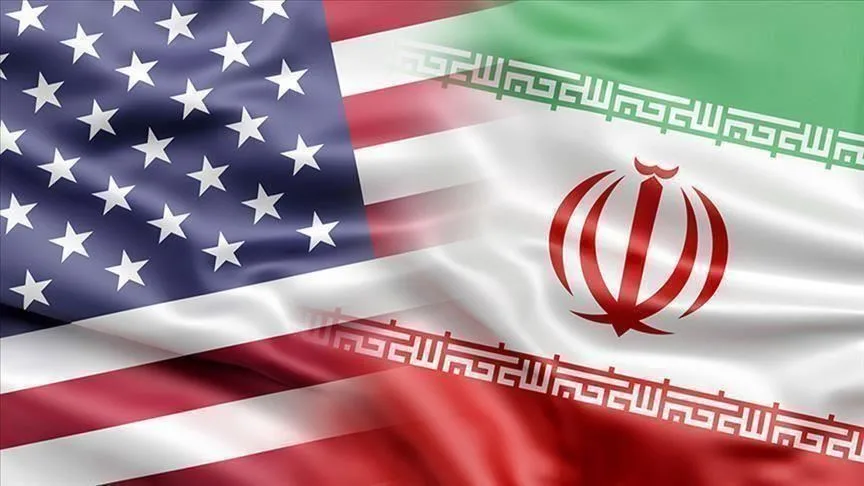Relations between Iran and the United States have been permanently strained since the 1979 Islamic Revolution that toppled the pro-American Shah. Hostility towards Washington has become one of the main pillars of Iran's theocratic regime. However, economic difficulties - especially inflation, unemployment and lack of investment caused by strict sanctions - have prompted Supreme Leader Ayatollah Ali Khamenei to take a pragmatic approach and support negotiations with the United States, including with President Donald Trump's administration following the US withdrawal from the 2015 nuclear deal (JCPOA).
Khamenei was reticent about the meeting: he said he was "neither too optimistic nor too pessimistic", indicating an effort to temper public expectations. Nevertheless, it is clear that the outcome of the negotiations will have a major impact on Iran's future - even if the United States is subsequently portrayed by the Iranian regime as having violated the agreement.
After the positive talks in Oman over the weekend, the Iranian public's expectations have risen considerably. Both sides have agreed to resume talks on 19 April, again in Oman.
Expectations from the dialogue
- Diplomacy and de-escalation of tensions
Iran expects tensions to ease, especially after the US unilateral withdrawal from the JCPOA in 2018. Tehran aims to achieve the lifting of sanctions that have crippled its economy. In contrast, Washington demands Iran's return to full compliance with the JCPOA, including curbs on its nuclear program, while seeking to address Iran's missile program and activities in the region, which it considers destabilizing.
- Economic concessions
Iran's main objective is to restore the economic benefits that have flowed from the JCPOA, including oil exports and access to international markets. In exchange, the United States expects Iran to curb its nuclear research and to stop supporting armed groups designated as terrorist organisations.
- Ensuring nuclear non-proliferation
Iran insists on its right to enrich uranium for peaceful purposes in accordance with the Nuclear Non-Proliferation Treaty (NPT). The United States, on the other hand, demands a halt to all activities beyond the JCPOA and guarantees that Iran is not seeking to acquire nuclear weapons.
- Security stability in the region
Iran is demanding a reduction in the presence of foreign troops in the Middle East, particularly US forces in Iraq, Syria and the Persian Gulf. It expects recognition of its influence in these regions. The US wants Iran to end its support for groups such as Hezbollah and Hamas, and to limit its development of ballistic missiles.
- Human rights and political reform
While the US is pushing for greater political freedoms and an end to repression of the opposition, Iran rejects foreign interference in its internal system. It sees criticism of human rights as an attempt to undermine its sovereignty.
Concerns about dialogue
- Trust and past breaches of agreements
Iran fears that the United States will again renege on its commitments - as it did when it withdrew from the JCPOA under the Trump administration. The US, for its part, questions the transparency of Iran's dealings, particularly with regard to military nuclear research and support for armed groups.
- Regional ambitions and the nuclear programme
The US fears a nuclear-armed Iran and a subsequent regional nuclear escalation. Iran, on the other hand, warns that the agreements could limit its influence in Iraq, Syria and Lebanon, thus jeopardising its geopolitical position.
- Internal political resistance
There are strong political currents in both Iran and the US that criticise any compromise. In Iran, hardline factions refuse to give in to "imperialist" demands, while in the US the administration faces criticism for dealing with Tehran at all.
- Lack of trust and effective communication
Both sides suspect each other of tactics and abusive negotiations to gain time or geopolitical advantages. Tehran fears that the US will only prolong sanctions without real concessions. Washington fears that Iran is using the negotiations to cover for the covert development of nuclear capabilities.
- Influence of allies and international factors
Iran is wary of the influence of US allies, particularly Israel and Saudi Arabia, which it says are pushing for a tougher stance against Tehran. The US fears Iran's growing cooperation with Russia and China could threaten its position in the region and the world.
Conclusion
Dialogue between Iran and the United States offers a significant opportunity to reduce tensions and enhance stability in the region, but it also carries significant risks. Expectations on both sides - from economic reforms to security guarantees - are burdened by historical grievances, a lack of trust and domestic political pressures. The success of the negotiations will depend on the ability of both sides to overcome their differences and forge credible and lasting agreements.
By Zaheer Alam (translated and edited by Jan Vojtěch)



